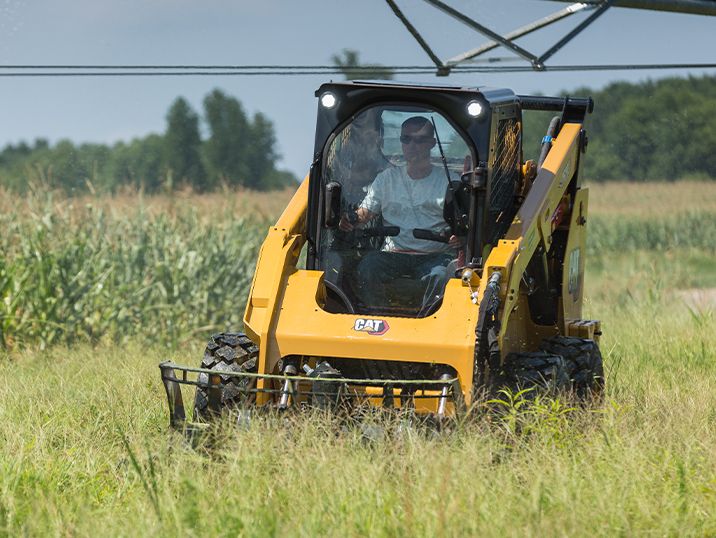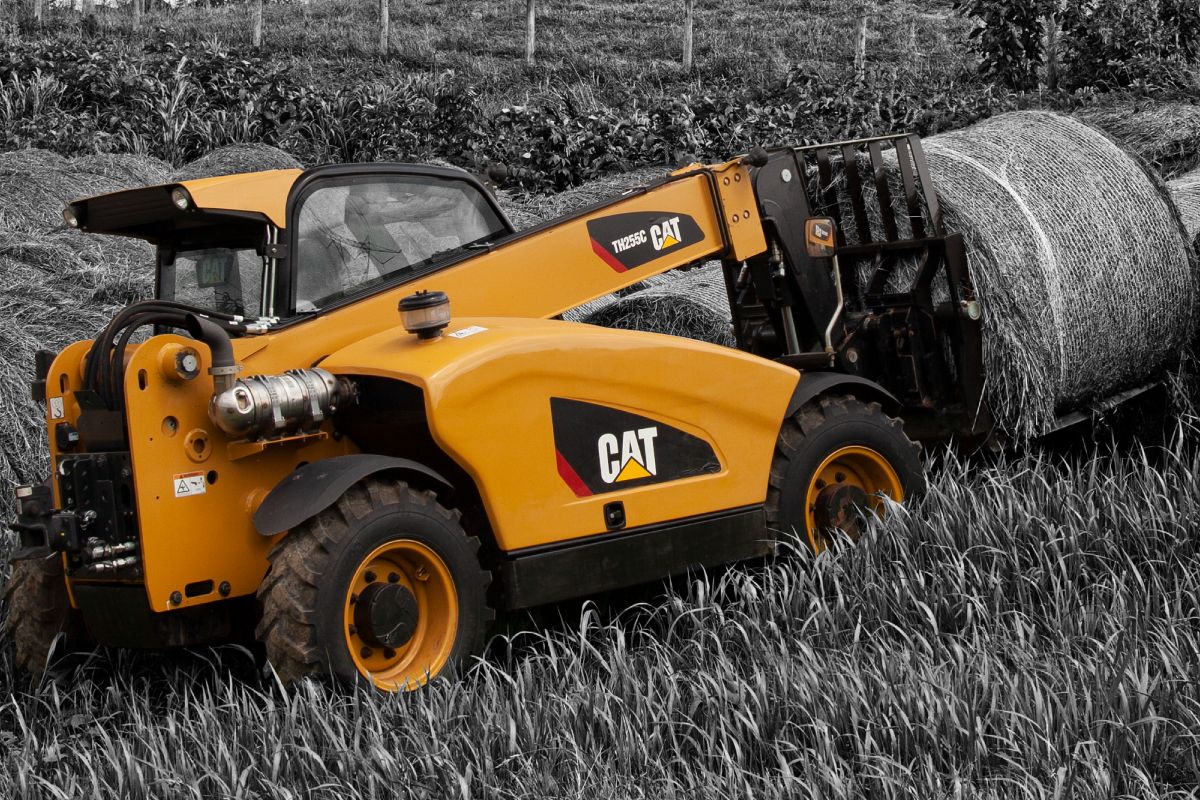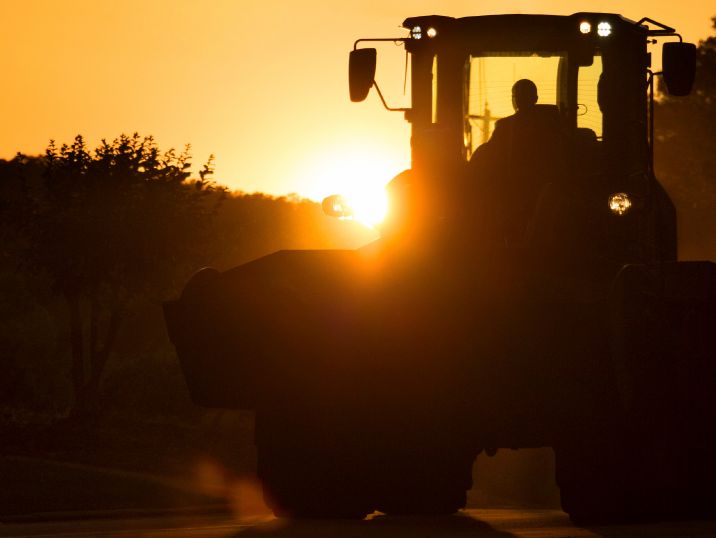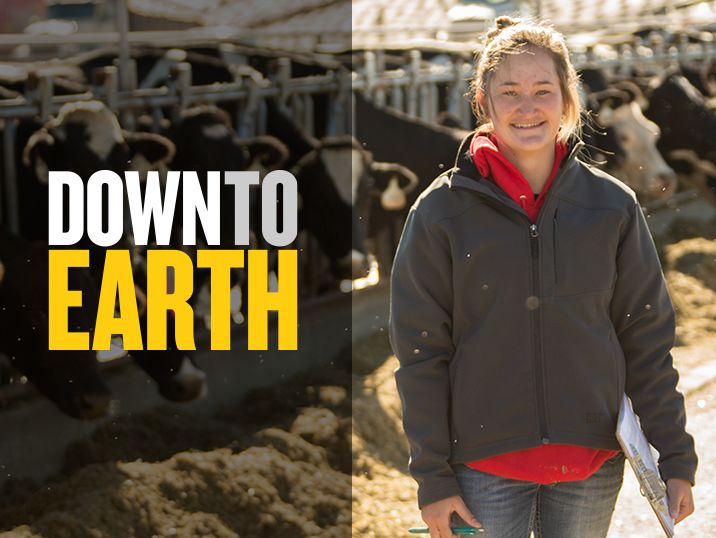

Sign In
Welcome! Sign In to personalize your Cat.com experience
If you already have an existing account with another Cat App, you can use the same account to sign in here
Register Now
One Account. All of Cat.
Your Caterpillar account is the single account you use to log in to select services and applications we offer. Shop for parts and machines online, manage your fleet, go mobile, and more.
Account Information
Site Settings
Security
How to Build a Sustainable Farm Operation
Sustainable agriculture is an essential consideration for the future of farming. Keep reading to learn more about methods, key factors, and resources to help you integrate these practices in your operation.
Ben Rice | Agriculture Industry Representative
Sustainability is a hot topic, and while it may be a label you see more and more often in a variety of places, it’s important to understand what it means to your operation and to your industry. Sustainable agriculture means focusing on farming practices that allow you to meet the needs of your customers without compromising the ability of current or future generations to do the same.

Methods of Sustainable Agriculture
It’s no secret that agriculture has a large environmental impact – it not only plays a role in many environmental processes but is also significantly impacted by changes to the environment. There are several different methods to consider for your operation.
- Rotational Grazing
Move your herds or flocks regularly to rested grazing areas to get them access to the best, and most, forage. This process gives your various fields time to deepen their root systems and rebuild energy reserves, which in turn gives you better biomass production results in your livestock. You may also find that you need less supplemental feed vs. using a continuous grazing process. - Crop Rotation
Similarly, rotating your crop varieties in different fields helps you avoid nutrient depletion in your soil. Try alternating a deep root vs. a shallow root plant to improve soil structure and soil fertility. - Vertical Farming
While more popular in urban settings, this method is a great way to maximize space and increase your output. Vertical farming is highly successful for lower calorie foods. - Organic Farming
This method is a big commitment, but one that could pay off. According to a recent study, consumers prefer organically produced food because they’re concerned about health, the environment, and animal welfare, and they’re willing to pay a premium to have access to organic goods. - Agritourism
The University of California defines this as “any income-generating activity conducted on a working farm or ranch for the enjoyment and education of visitors.” This can include a range of things like outdoor recreation, product sales, hospitality, etc. Agritourism can help you maintain your land’s resources while simultaneously enabling you to develop a more sustainable operation.
Factors that Affect Sustainability
- Water
Agriculture uses a large amount of water, so developing drought resistant farming often requires some well-thought-out systems. Be sure to evaluate your water conservation and storage practices, your irrigation systems, and crop management to reduce water loss. - Soil Health
Nutrients and soil degradation can be a huge problem in any region, much like water availability. Consider practices like no-till farming to avoid erosion issues and long-term damage to your soil. Well-planned crop rotation and carefully chosen fertilizers can help you ensure the right balance of nutrients like nitrates, phosphate, and potassium. - Energy & Emissions
Farm Bureau reports that farmers and ranchers have put in 132% more renewable energy sources in the last five years. This includes things like geothermal, solar panels, windmills, hydro systems, and more. You’ve also removed the equivalent to 17 million cars off the roads by reducing emissions – something we work hard to support with things like Eco Mode in Cat® machines. Smart equipment choices, as well as efficient equipment use, can positively impact your energy use and emissions output on the farm. Ask your local Cat dealer for more information.
Why Should You Consider Sustainable Agriculture?
Sustainable agriculture can positively impact not only your farming operation but also consumers across the country. A few of the big reasons to evaluate and improve the sustainability of your operation are helping to lower pollution levels, improving the health of your soil, and reducing your farm’s water use.
Consumers and retailers alike are increasingly looking for value-based foods that are grown or raised with sustainable and ethical methods. They want to know that the farmers they’re supporting are conscious of being environmentally friendly, treating their farmworkers well, and raising livestock ethically.
Resources for Your Farm
Be sure to take advantage of educational opportunities through the National Institute of Food and Agriculture, as well as other resources, to improve the sustainability of your operation.
- USDA Organic Certification: www.usda.gov/topics/organic
- USDA Agritourism Reference Guide: www.nrcs.usda.gov/wps/portal/nrcs/detail/null/?cid=nrcs143_009750
- Farm Bureau: Farmers for a Sustainable Future: www.fb.org/land/fsf
- US Roundtable for Sustainable Beef: www.usrsb.org
Click here to view agricultural associations sponsored by Caterpillar, with discounts on machines and attachments for members.

Ben Rice
Agriculture Industry Representative
Having spent his formative years on a tobacco farm, Ben Rice went on in the agriculture field to earn degrees in Agriculture Business Management and Agriculture Science from North Carolina State University. Rice now brings his invaluable expertise to Caterpillar as an industry sales and service representative.
RELATED ARTICLES
You’re here to get ideas to grow your business. Read on for machine insights and expert tips and tricks to get more out of every job.
-
Buying Used Machines
Find our five tips on buying used machines, so you can get the same quality, reliability and performance as new equipment.
Learn More -
Resources for Women in Agriculture
The percentage of female farmers is growing in North America. We take a look at some resources for women in agriculture, including women's mentorship programs and financial aid for farmers.
Learn More -
2022 Agriculture Holiday Gift Guide
Whether you’re shopping for you, your farm, or your family, our 2022 agriculture holiday gift guide has you covered.
Learn More -
Promoting Your Farming Business on Social Media
Promoting your farming business on social media is a great way to reach new people as we spend more time online.
Learn More







